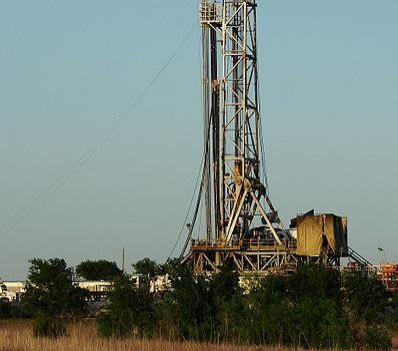Earthquakes in Central U.S. ‘Almost Certainly’ Tied To Fracking

Over the past few years, the number of earthquakes in the usually seismically calm central United States has skyrocketed. Now scientists are pointing the finger at hydraulic fracturing, better known as fracking, as the culprit.
Fracking is a method of extracting natural gas, the cleanest fossil fuel, from underground rocks. Proponents of natural gas say it could reduce the country's dependence on foreign oil since vast majority of it comes from within the country. Natural gas is also more plentiful and cheaper than oil.
Workers use high-pressure fluids to create fractures in rocks such as sandstone and shale to allow natural gas to flow out. The injection of these high-pressure fluids, a combination of water sand and chemicals, are suspected of causing earthquakes.
We've been watching the seismicity across most of the country very carefully for a number of years now, Bill Ellsworth, a seismologist at the U.S. Geological Survey and coauthor of the study, told NPR, One thing we had begun to notice was there was an unusual number of earthquakes occurring in the middle of the country.
On average, the central U.S. experienced 21 earthquakes per year between 1970 and 2000. However, the numbers jumped suddenly in 2009, when the area was hit by 50 quakes -- and it has been rising every year.
The area was hit by 87 quakes in 2010 and 134 in 2011, according to the U.S. Geological Survey. Officials concluded that the earthquakes are being caused by wastewater from fracking, according to research that will be presented at the Seismological Society of America conference next week.
Our scientists cite a series of examples for which an uptick in seismic activity is observed in areas where the disposal of wastewater through deep-well injection increased significantly, David Hayes, the deputy secretary of the U.S. Department of Interior, said in a blog post.
Researchers found clusters of wastewater wells where the majority of the earthquakes occurred. As fracking became more popular more and larger wells were created, which led to more disturbances and more earthquakes.
[An increase of earthquakes] of this magnitude is unprecedented outside of volcanic settings or in the absence of a main shock, of which there were neither in this region, the researchers wrote.
Steve Horton, a seismologist at the University of Memphis who has been tracking earthquakes in Arkansas, said there is too strong a link between fracking and earthquakes for it to be a coincidence.
The earthquakes started after the injection at the two wells started, and they stopped after the injection stopped, he told NPR.
Geologists aren't sure exactly how fracking is causing the earthquakes, but say it doesn't take much to trigger one.
Small perturbations can tip the scales, allowing an earthquake that might not otherwise happen for a very long time, Ellsworth said.
There is no way to predict if a well site will produce an earthquake, researchers said, but they plan more studies to determine what exactly is triggering them.
The geologists published the abstract of their study online on Thursday, but are holding off on releasing any more information until they present the research next Wednesday at the conference.
Read more: Earthquakes Linked To Natural Gas Drilling's Waste Water Wells, Says USGS
© Copyright IBTimes 2024. All rights reserved.





















